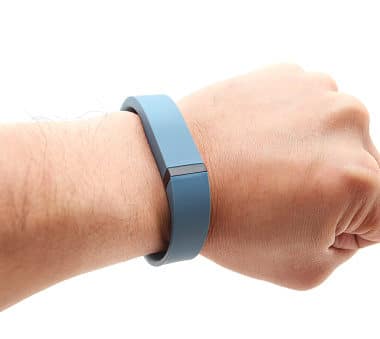Fitness Tracker Benefits: The What and Why

As you know, keeping fit is part of keeping your heart and cardiovascular system healthy. Our Denver heart doctors highly recommend diet and exercise to our patients and setting up individual physical goals. To that end, you may have heard or read about fitness trackers. You may even have friends or family that wear them. But, you could be wondering what exactly they are used for and what some fitness trackers benefits are and why exactly people wear them.
What are Fitness Trackers?
In general, fitness tracker are wearable devices that, in most cases, people wear on their wrist. Depending on the brand or model, they can look very much like a digital watch or a band with a small digital display.
Most fitness trackers track number of steps taken, heart rate, and sleep patterns. Some also have connected apps that allow you track your overall progress, set goals as well as offer guidelines to help you achieve your fitness goals.
Some of the most common brands of fitness trackers are FitBit, Garmin and Jawbone. Depending on their features, most fitness trackers will start at around $100, but many of the more feature rich ones will go as high as $250. Choosing which fitness tracker is for you will largely depend on what features are import to you. At their most basic, the lower priced models will track your steps and overall heart rate. Higher end trackers will do that as well as track your sleep patterns, calories burned and even offer the ability to select specific activities you are doing to provide more accurate fitness reporting toward your goals.
The Benefits of Fitness Trackers
- Personal Accountability – This is the number one benefit and reason people use fitness trackers. Many trackers keep track of your goals and progress to, psychologically, encourage you to get more steps in than the day before or perhaps run faster than yesterday and sustain a higher peak heart rate for just a little longer. In fact, some studies have found that even just wearing a basic pedometer can increase activity levels by 30 percent.
- Individually-Tailored Goals – Many fitness trackers have workouts, tips, and realistic goals that you can set yourself. For example, if you want to run a 5K, but have not run more than 100 yards in the past year, the tracker will set individual milestones for you to get you up to your goal of running 3.1 miles.
- Weight Loss – When you use a fitness tracker and try to meet or beat your personal goals, you will likely see some pounds being shed. When you look at your activity levels and notice if you’re in the correct heart rate zone and then when taking a look at the weight scale you can see if you are on track toward your desired weight.
- Group Motivation – While fitness trackers are centered around you as an individual with the objective of helping you meet your goals and personal milestones, some people enjoy the social features that some fitness trackers can provide. Depending on the fitness tracker, you can choose to share your progress with your social media networks, which allows your friends to encourage you. Some, in fact, have features where you can connect with other “fitness trackers” in your area and create your own workout groups and challenge each other to meet their goals.
- Sleep Tracking – Trackers are now used to determine how well you are sleeping by monitoring your movement while asleep. Getting three full cycles of sleep in per night is important to maintaining your energy levels and giving your brain, and the rest of your body, the time it needs to recover and process everything that happened in the day prior.
How to Use This Information
Fitness is vitally important to maintaining a healthy heart. Fitness trackers can help keep you motivated and staying fit. So, if you think something like that is right for you, it is worthwhile to investigate them and see what is right for your fitness lifestyle. And, as always, we have a variety of fitness classes where you are welcome to wear a fitness tacker to as well! See our classes on our calendar of events or call us at (303) 744-1065.
- 9 Tips to Reduce Holiday Stress - December 11, 2025
- 6 Tips for Exercising Outdoors with a Heart Condition - May 19, 2025
- Lifestyle Changes That Can Help Manage Arrhythmia - April 30, 2025
Sign Up
As with any health concerns, your specific treatment program should be discussed thoroughly with your primary care physician as well as any specialists who may need to be consulted – like a cardiologist.
Sign Up
